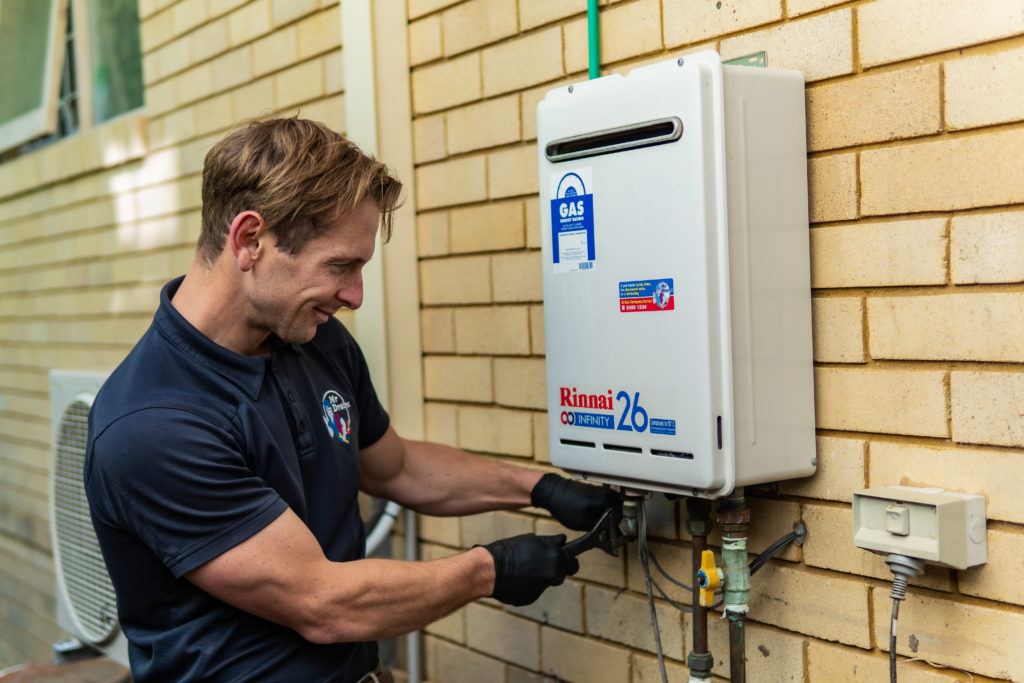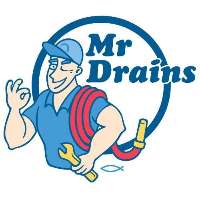Your hot water system is the engine room for your home, Did you know your hot water system needs maintenance ?
Tips for prolonging the life of your hot water system.
1, Ensure you have a pressure limiting valve installed on the cold water inlet.
2, Regularly release some water though your TPR Valve (Temperature pressure relief valve)
3, Replace the Anode in your hot water system every 3-4 years.
Did you know you can install a Temperature control valve on your hot water system to prevent accidental scalding, We highly recommend these device if you have young kids or elderly people living with you.

Choosing the right Hot water system for your home.
There are a number of different options on the market now when it comes to selecting a new hot water system for your home some of the important factors to consider are.
- The amount of hot water needed daily for the number of people living in your home.
- The length of time you plan on staying in the home.
- What type of system best suits you – Electric, Gas, Solar, Continuous Flow or Heat Pump. Select the correct unit is important for your energy in the years to come.
Electric Hot water system
This is currently one of the most common systems used to heat water at homes across New South Wales, as it is one of the most cost effective units to have installed but does cost more to run for the life of the unit.
Gas Hot water systems
This system is slightly more expensive to purchase then an electric system but running, operational costs and maintenance costs are much lower and this units is great value for money.
Solar Hot water system
This unit is the most expensive to have installed on your property but you will have no operational costs as long as you have great sunlight. Maintenance cost are required on this system also so please bear that in mind.
Heat Pump hot water system
This system is another great system which will have very low operational costs moving forward once installed, but do sit in the more expensive range to purchase but with this unit rebates are offered if you do install this system and you can get you up to $1,000 back on the purchased price.
Location of the system
Inside, outside or down side of the house.
We are always happy to answer any questions you may have about your hot water system.
Ph 9986 1234
Continuous Flow hot water systems are the popular choice.
The choice in hot water heater by clients of NSW Hot Water has been our instantaneous water heaters, otherwise known as continuous flow hot water heaters or instant hot water systems. These provide an efficient solution to hot water heating needs and cost between $1,500 and $3,000 depending on what your current plumbing application is. A continuous hot water system heats your water when you need it. This makes the option affordable and eco friendly. Hot water will be provided day in and day out by a static heater that only heats the supply, not the storage unit.
How Do Continuous Flow Hot Water Heaters Work?
Although there are several varieties of continuous flow hot water systems, they all run on the same foundation. The system takes cold water from your wait main supply, and pushes it through a heat exchanger or glowing element that is heated by gas or electricity.
When the tap is turned on, the heating element is triggered. The heat pumps heat the water to a desirable steamy temperature before it is expelled from the shower head or sink faucet. In a gas hot water system, gas is used to ignite a burner, in an electric water heater system, your regular electricity supply is utilised to trigger a heating element. Electric systems tend to be slightly less efficient than gas heater systems.
Benefits of a Continuous Flow Hot Water System.
The benefits of a continuous flow hot water system not only include everyday all night access to hot water. Because an instantaneous hot water system only uses a small hot water storage system to hold hot water, four main advantages become evident:
- The system never runs out of hot water, so you never need to wait for a refill.
- The system doesn’t waste energy keeping water hot over extended periods. It is energy efficient.
- The system is more environmentally friendly because of the two aforementioned.
- The system is efficient to store because the storage tank is rather more compact.
Gas vs Electric Hot water systems
It is not often that you find yourself looking for gas vs electric hot water heater solutions, except in the instance that your current system stops working or you move into a new house. Without a hot water system, you are living uncomfortably, No one likes cold showers in the morning or night. If you are replacing your system, it pays to know which options are best suited to your situation. Heating water takes up 14-18% of our electricity bill, so choosing the right heater is important to optimising your investment or keeping costs down in your home so you can enjoy more of your hard earned money.
Standard water heaters use a gas flame or electric heating element to heat your water. Depending on the cost of utilities in your area, gas heaters are generally more affordable to run than electric heaters. However, gas heaters cost more upfront than electric heaters. Despite this, they will generally pay off the difference in purchase price within about a year of operating.
Gas VS Electric Water Heaters:
Gas water heaters are generally more efficient than electric water heaters. They will burn more consistently and heat up water faster than is possible with an electric heating element. Electric heaters by comparison require a lot of energy to run and are relatively inefficient.
Since gas hot water heaters do not need a storage tank, the actual systems are also smaller, especially the tankless instant gas water heaters available. Because they are smaller, they do not need to run as often. The gas burner heats up the water as you need it, so it is not necessary to heat up a large volume of water in storage for use later as is the case with an electric water heater.
Gas and Electric Water Heaters Installation
The system that is more appropriate for your home will depend on the size of the pipework in your home and also if Gas is on your property. Switching from electric to gas will require installation of gas lines which will contribute to the overall expense of your new water heater.
